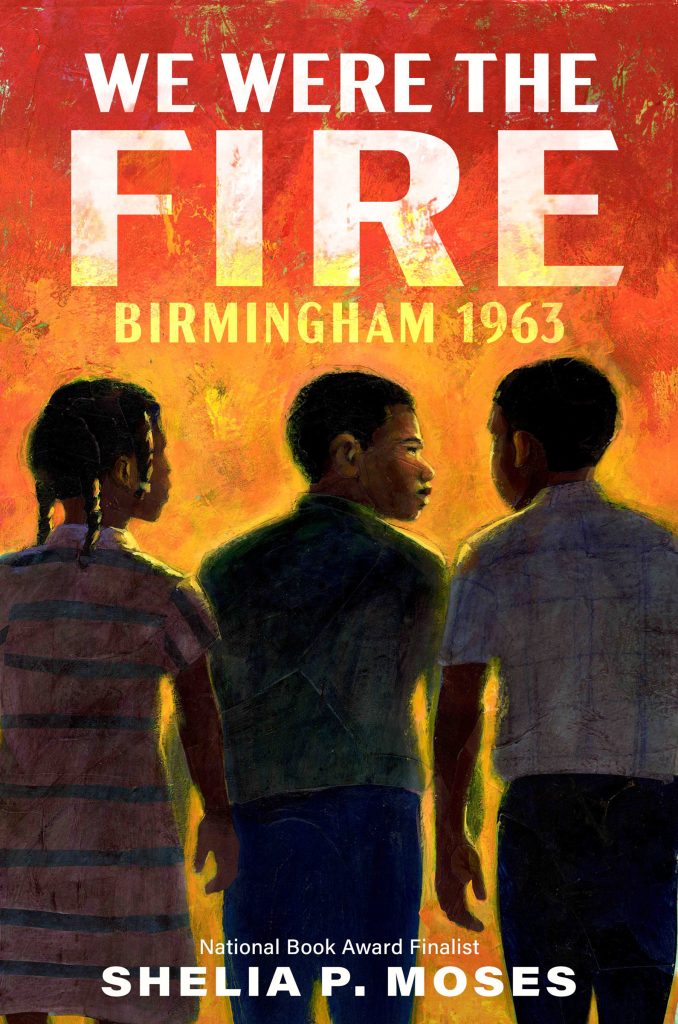Sometimes, you burn with a white-hot anger.

So many roadblocks in front of you, so many injustices, damage, and danger. One day, this old world will be yours to run, and you wonder what kind of shape it’ll be in then. Will changes be made by adults or will kids like you have to make them happen? In answer: read “We Were the Fire: Birmingham 1963” by Shelia P. Moses, and put your work clothes on.
For eleven-year-old Rufus Jackson Jones Jr., life on Bull Hill in Birmingham was a struggle, but his family got by. His mother worked hard at home and at the steel mill, the same place where Rufus’s father died a few years ago. So Rufus and his little sister, Georgia, helped as much as they could to lighten the load.
Rufus thought about his father a lot.
He thought about his father even more when a man came calling on his mother. He wasn’t happy with the idea of his mother getting married again, but Rufus grew to appreciate the man he eventually called “Daddy Paul.”
He was pretty excited, then, when Daddy Paul found the family a new house in Ivy Town – one with electricity and a bathroom! No more sharing a bedroom with Georgia! It took courage for Daddy Paul to even ask about the house; it was owned by a white woman who also owned the steel mill. But Miss Frances was a nice woman, and she insisted on helping Rufus’s family out as much as she could.
She even helped at the marches.
For weeks, the adults in Bull Hill had been talking about Dr. King and the wave of change that was coming. They were planning on joining Dr. King at the marches; quiet meetings were held in secret places and older folks were saving cash for bail money to get their loved ones out of jail. What the adults didn’t know was that the teenagers were planning on marching.
They also didn’t know that the children would be there, too…
The first few pages of “We Were the Fire: Birmingham 1963” move fast – almost too fast, for adult sensibilities. That’s when you remind yourself that this isn’t an adult book.
No, there’s a grown-up theme in the book, but it’s made simpler as author Shelia P. Moses tells this story from the point of view of an adolescent boy who burns to help make the change he knows must come. The history, the event that is in the books’ title, is almost a side-story in the beginning of this tale, running alongside the fiction of the novel until the two merge with a bang. At that point, parents will be happy to know that the real events are told authentically in this book, but they’re softened for its 8-to-12-year-old audience.
Perfect for young readers of history-based fiction, this book will also appeal to anyone who needs a Black history lesson. If that’s you or your child, “We Were the Fire: Birmingham 1963” is matchless.
By Shelia P. Moses, c.2022, Penguin Young Readers, 162 pages.



